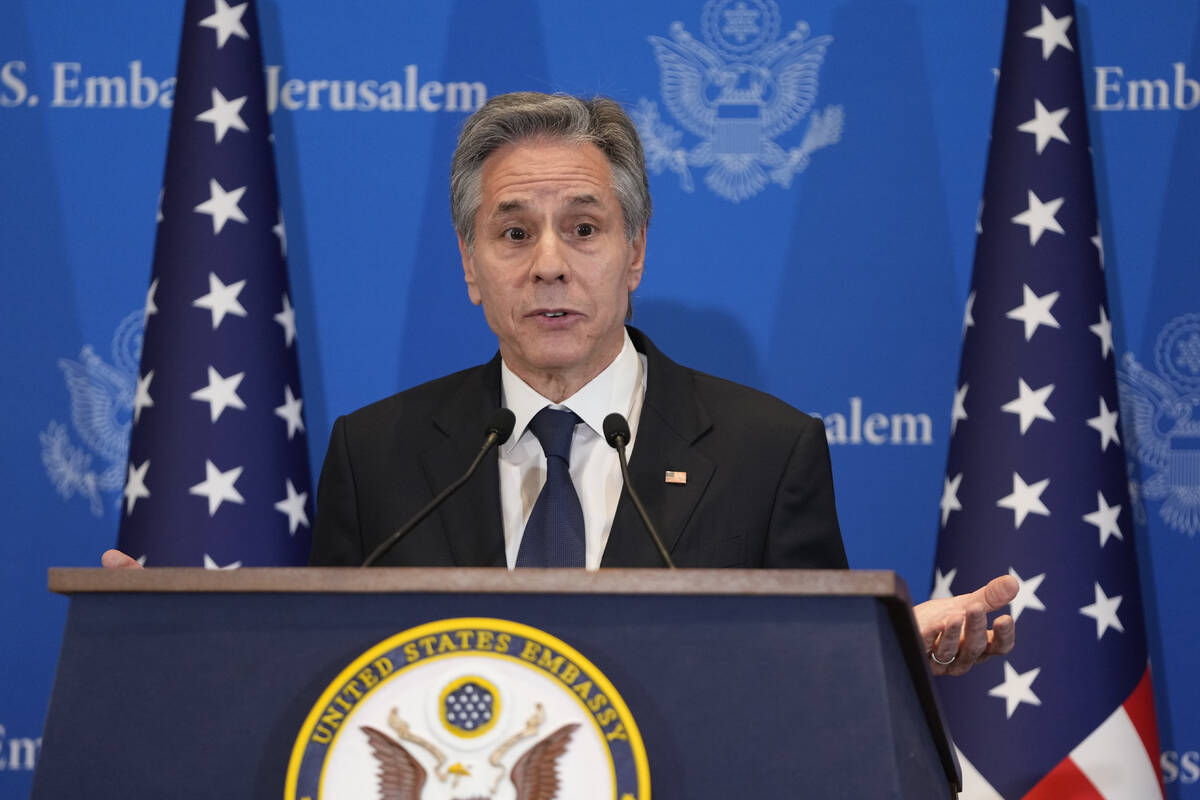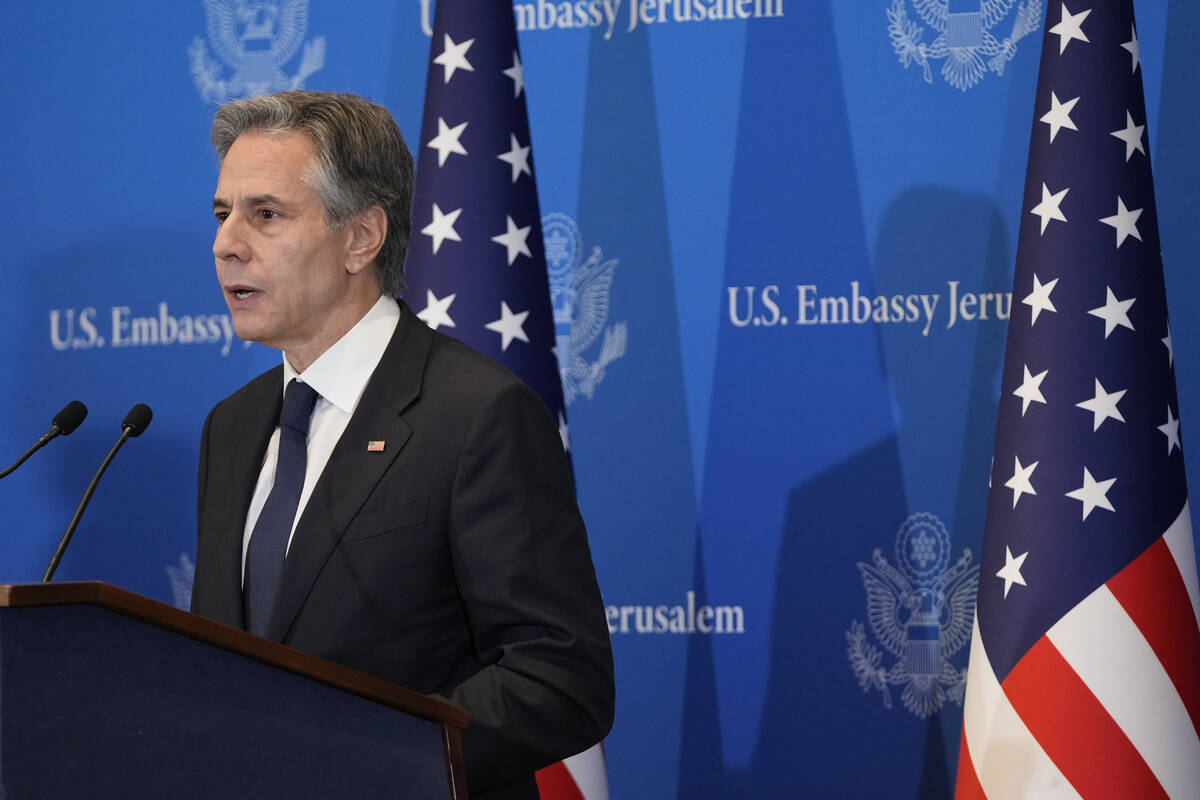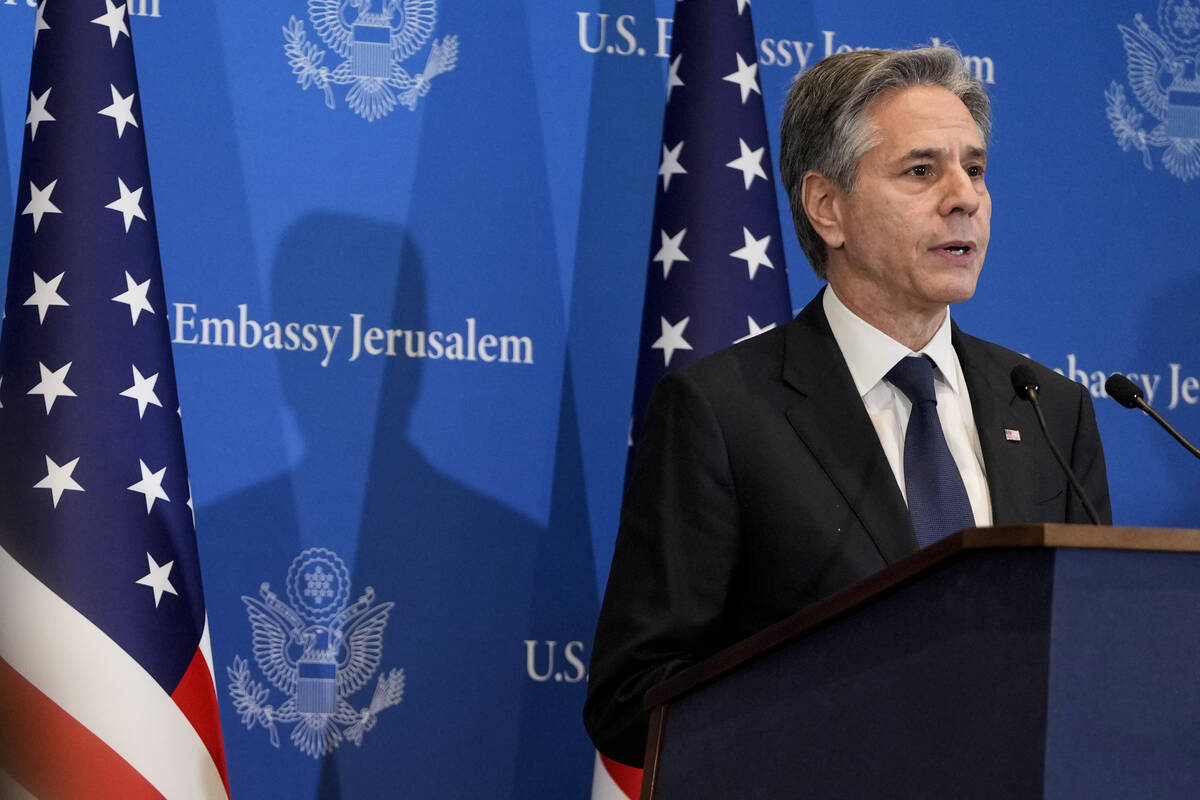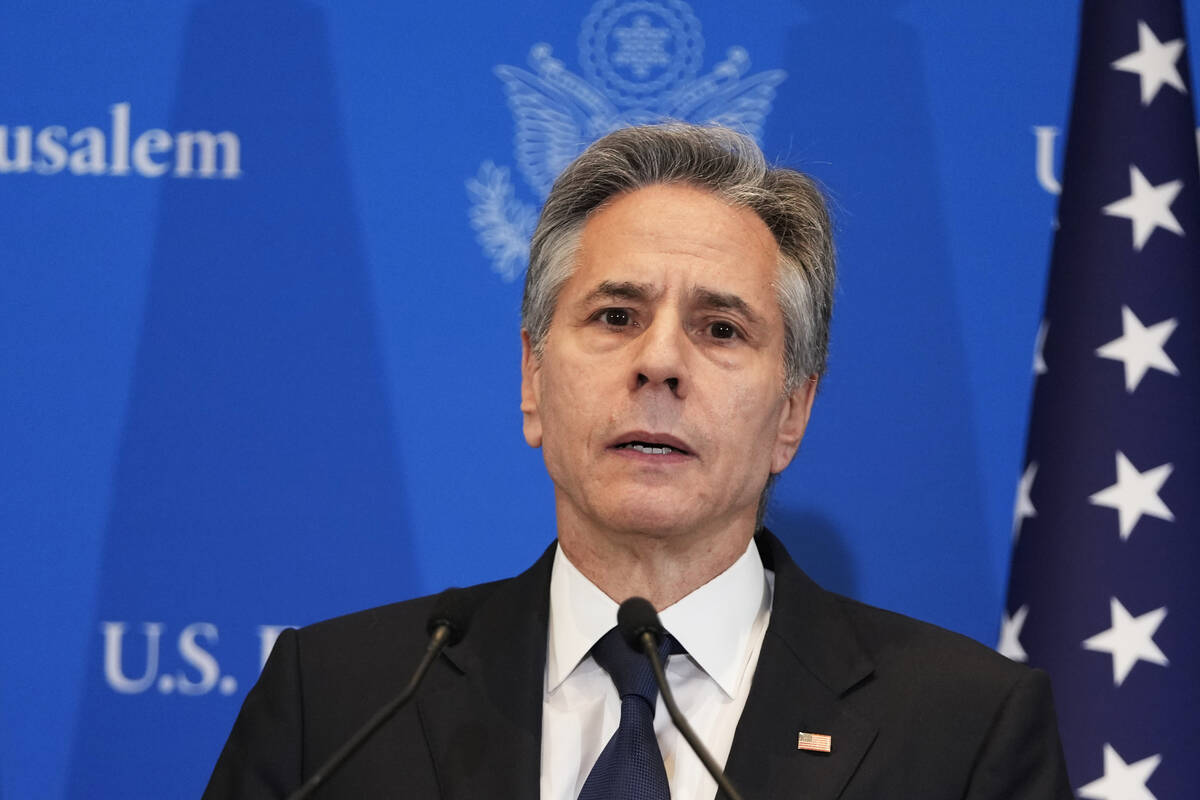Blinken says a Hamas-Israel deal is still possible
TEL AVIV, Israel — Secretary of State Antony Blinken said Wednesday that a cease-fire and hostage-release agreement between Israel and Hamas was still possible, despite the two sides being far apart on the central terms for a deal.
Blinken was in the region trying to broker an arrangement that could bring some respite in Israel’s war against Hamas, which is entering its fifth month after Hamas terrorists attacked southern Israel, killing 1,200 and taking another 250 hostage.
Those diplomatic efforts were rattled earlier in the day when Israeli Prime Minister Benjamin Netanyahu rejected a detailed, three-phase plan by Hamas that would unfold over 4 1/2 months.
The plan stipulated that all hostages would be released in exchange for hundreds of Palestinians imprisoned by Israel, including senior terrorists, and an end to the war.
Netanyahu, who called Hamas’ plan “delusional,” dismissed any proposal that leaves the terrorist group in full or partial control of Gaza.
Netanyahu said military pressure was the best way to free the roughly 100 hostages held in the Gaza Strip.
Israel has made destroying Hamas’ governing and military abilities one of its wartime objectives, and Hamas’ proposal would effectively leave it in power in Gaza and allow it to rebuild its military capabilities.
But Blinken downplayed the posturing, saying it was part of the arduous negotiating process. “It’s not flipping a light switch. It’s not yes or no,” he said.
“While there are some clear non-starters in Hamas’ response, we do think it creates space for agreement to be reached, and we will work at that relentlessly until we get there,” he said.
Blinken is trying to advance the cease-fire talks while pushing for a larger postwar settlement in which Saudi Arabia would normalize relations with Israel in return for a “clear, credible, time-bound path to the establishment of a Palestinian state.”
Hamas spells out demands
Hamas’ statements came in response to a proposal drawn up by the United States, Israel, Qatar and Egypt. The terrorists’ reply was published in Lebanon’s Al-Akhbar newspaper, which is close to the powerful Hezbollah terrorist group.
A Hamas official and two Egyptian officials confirmed its authenticity. A fourth official familiar with the talks later clarified the sequencing of the releases. All spoke on condition of anonymity because they were not authorized to brief media on the negotiations.
In the first 45-day phase, Hamas would release all remaining women and children, as well as older and sick men, in exchange for an unspecified number of Palestinian prisoners held by Israel. Israel would also withdraw from populated areas, cease aerial operations, allow far more aid to enter and permit Palestinians to return to their homes, including in northern Gaza.
The second phase, to be negotiated during the first, would include the release of all remaining hostages, mostly soldiers, in exchange for all Palestinian detainees over the age of 50, including senior terrorists.
Israel would release an additional 1,500 prisoners, 500 of whom would be specified by Hamas, and complete its withdrawal from Gaza.
In the third phase, the sides would exchange the remains of hostages and prisoners.
Victory in ‘a matter of months’
At the news conference earlier, Netanyahu rejected Hamas’ demands, saying they would lead to a disaster for Israel.
“Surrendering to Hamas’ delusional demands that we heard now not only won’t lead to freeing the captives, it will just invite another massacre,” Netanyahu said in a nationally televised evening news conference.
Netanyahu said the Israeli military had achieved many of the goals it set out and that victory was “a matter of months” away.
He said forces had dismantled 18 of Hamas’ 24 battalions, destroyed tunnels and killed terrorists, and that military pressure on Hamas was the best way to bring about the release of the hostages. He said preparations were underway for the military to move into the southern Gaza border town of Rafah, where hundreds of thousands of displaced Palestinians have crammed to flee the fighting.
“We are on the way to an absolute victory,” Netanyahu said. “There is no other solution.”
That stands in contrast to some Israeli officials, who say Israel’s two goals of destroying Hamas’s capabilities and freeing the hostages are incompatible and that only a deal can lead to their release.
Meanwhile, Hamas has continued to put up stiff resistance across the territory, and its police force has returned to the streets in places where Israeli troops have pulled back.
Netanyahu ruled out any arrangement that leaves Hamas in control of any part of Gaza. He also said that Israel is the “only power” capable of guaranteeing security in the long term.
At a news conference held immediately after his appearance, hostages freed in a late November deal said they were worried Netanyahu was taking too hard a line and that the remaining hostages and their families would pay the price.
Misery deepens in Gaza
There is little talk of grand diplomatic bargains in Gaza, where Palestinians yearn for an end to fighting that has upended every aspect of their lives.
While Blinken said Israel’s response to the Oct. 7 attack was “fully justified,” and he ruled out any role for Hamas in postwar Gaza, he also criticized some of Israel’s responses.
Blinken said the daily toll of Israel’s military operations on innocent civilians “remains too high.”
“Israelis were dehumanized in the most horrific way on October 7. And the hostages have been dehumanized every day since. But that cannot be a license to dehumanize others,” he added.
The Palestinian death toll from four months of war has reached 27,707, according to the Hamas-run Health Ministry in Gaza.
The ministry does not distinguish between civilians and combatants in its figures.
The violence in Gaza has drawn the attention of the United Nations’ top court, which last month ordered Israel to do all it can to prevent death, destruction and any acts of genocide in Gaza. But the panel stopped short of ordering an end to the offensive.
———
Shurafa reported from Deir al-Balah, Gaza Strip, and Goldenberg from Jerusalem. Associated Press writers Samy Magdy in Cairo, Josef Federman in Jerusalem and Abby Sewell in Beirut contributed to this report.

























